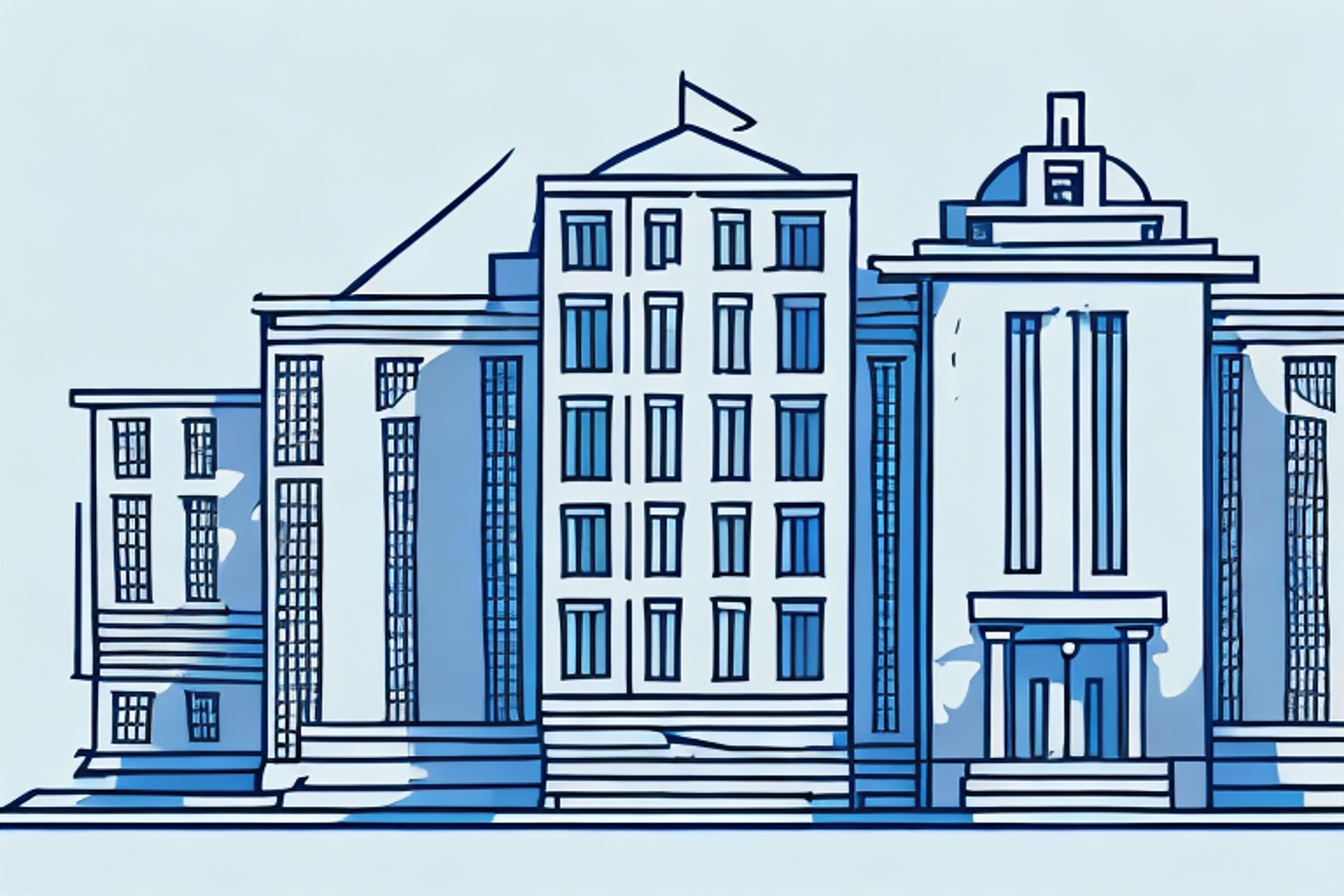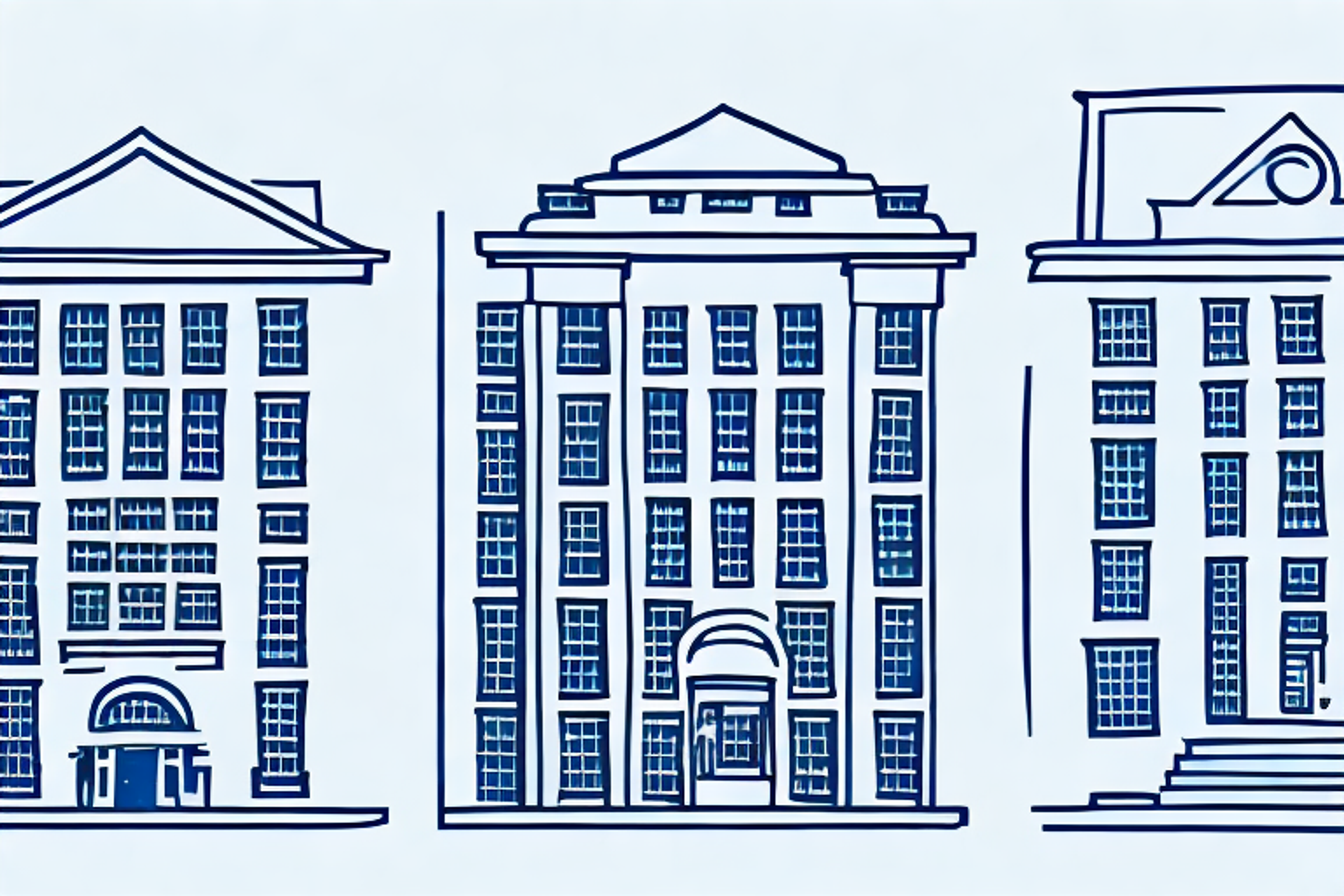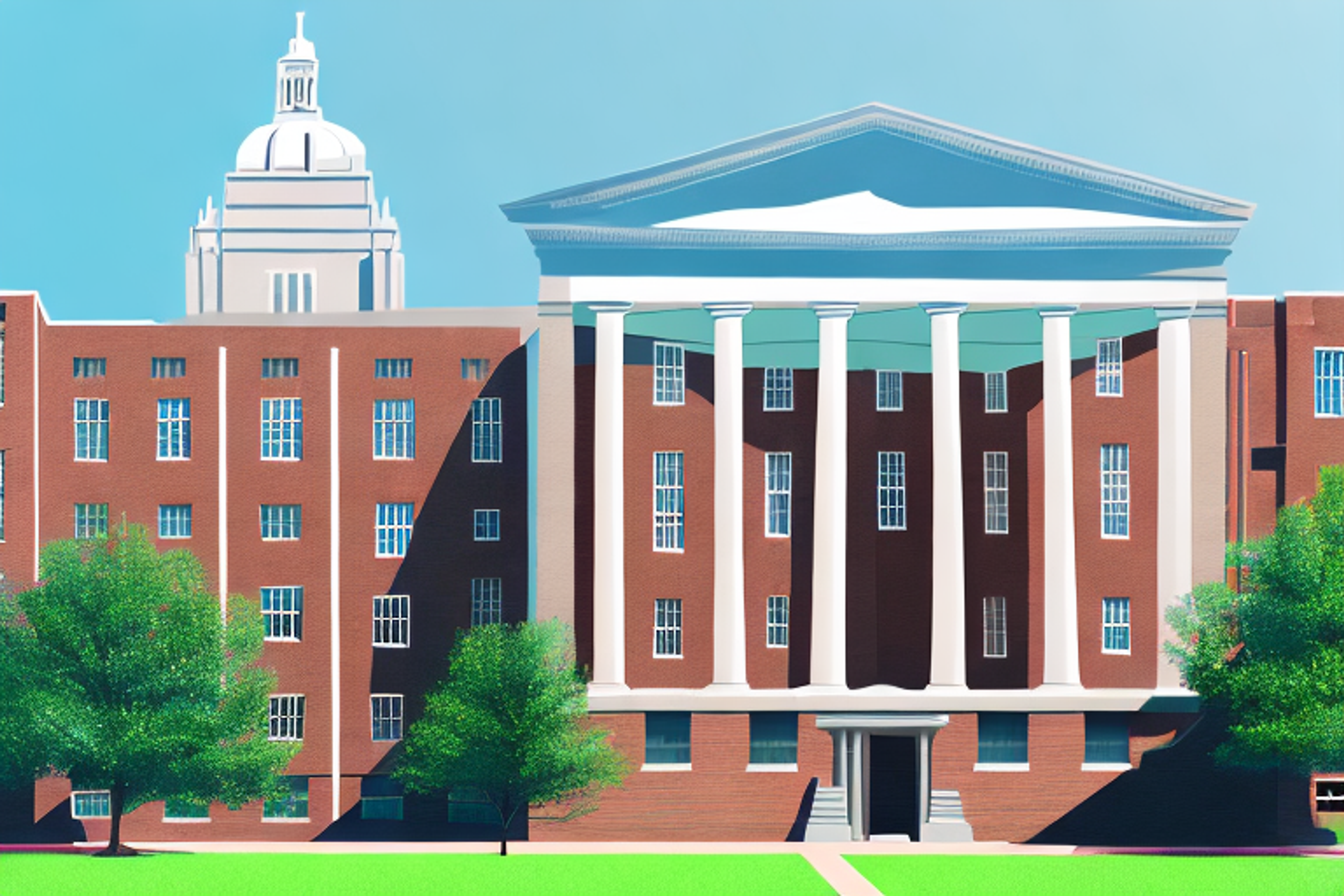University of California--Berkeley School of Law Vs. Georgetown University Law Center: An In-Depth Comparison
Discover the differences between the University of California--Berkeley School of Law and Georgetown University Law Center in this comprehensive comparison.
Posted March 6, 2025

Table of Contents
If you're considering getting a degree in law, you might have come across two prestigious institutions that are a cut above the rest. The University of California--Berkeley School of Law and Georgetown University Law Center have been around for quite some time, garnering a reputation for providing quality education. In this article, we'll explore everything these schools have to offer, from location and campus facilities to academic programs and curriculum comparison. So, buckle up and join us on this journey.
Introduction: Overview of the Two Law Schools
The University of California--Berkeley School of Law, also known as Berkeley Law, was established in 1894. At the same time, Georgetown University Law Center, one of the oldest schools of its kind in the United States, was founded in 1870. While both institutions provide excellent legal education, each has a distinct mission and culture.
Berkeley Law is known for its commitment to social justice and public interest law. The school offers a wide range of clinical programs that allow students to gain hands-on experience in areas such as environmental law, immigration law, and criminal defense. Additionally, Berkeley Law has a strong emphasis on interdisciplinary studies, with opportunities for students to take courses in other departments such as business, public policy, and environmental science.
Georgetown Law, on the other hand, is known for its international focus and its location in the heart of Washington, D.C. The school offers a variety of programs that allow students to gain experience in international law, including a joint degree program with the Walsh School of Foreign Service at Georgetown University. Georgetown Law also has a strong reputation for its programs in tax law and securities regulation.
History and Accreditation of UC Berkeley School of Law
Berkeley Law has a rich history of innovation and academic excellence. The school was the first to establish a clinical program in law and has also introduced many multidisciplinary courses, including law and economics, law and psychology, and law and technology. The school's innovative programs have led to its accreditation by the American Bar Association (ABA) and the Association of American Law Schools (AALS).
In addition to its innovative programs, UC Berkeley School of Law has a strong commitment to public service and social justice. The school offers a variety of clinics and programs that provide legal services to underserved communities, including the East Bay Community Law Center and the International Human Rights Law Clinic. The school also has a robust pro bono program, which encourages students to engage in volunteer work and public interest law. This commitment to public service has earned Berkeley Law recognition as one of the top law schools for public interest law.
History and Accreditation of Georgetown University Law Center
Georgetown Law Center is also known for its contributions to the legal field. The school's program in law and policy was the first in the country, and its Institute of International Economic Law is world-renowned. The school maintains its reputation as a top-tier law institution with the backing of the ABA, the AALS, and the Association of Legal Writing Directors (ALWD).
Georgetown University Law Center was founded in 1870 and is one of the oldest law schools in the United States. The school has a rich history of producing influential legal scholars and practitioners, including former U.S. Attorney General Eric Holder and former Secretary of State Hillary Clinton. In addition to its impressive alumni network, Georgetown Law Center is accredited by the American Bar Association (ABA) and is a member of the Association of American Law Schools (AALS). The school also has a strong commitment to legal writing and is a member of the Association of Legal Writing Directors (ALWD).
Location and Campus Facilities: Which Offers Better Amenities?
When it comes to location, both schools have advantages and disadvantages. Berkeley Law is located in a vibrant college town with excellent weather, while Georgetown Law Center is situated in the heart of Washington, D.C. Considering campus facilities, Berkeley Law has an impressive administration building, a large law library, and multiple clinics and centers dedicated to different areas of law. Georgetown Law Center also boasts a state-of-the-art library, moot courtrooms, and new research centers, including the Center for the Constitution. Overall, both campuses have excellent amenities customized to meet the needs of law students.
However, there is one area where Georgetown Law Center stands out. The campus has a dedicated fitness center exclusively for law students, complete with a gym, yoga studio, and locker rooms. This facility is a great resource for students who want to stay active and healthy while pursuing their legal education. Berkeley Law, on the other hand, does not have a dedicated fitness center for law students, although there are several gyms and fitness centers in the surrounding area that students can access.
Academic Programs and Curriculum Comparison
Both institutions offer a range of academic programs, and the curriculum comparison can be challenging due to their differing focus areas. For example, Berkeley Law offers an innovative J.D. program focused on social justice, environmental issues, and innovation. Georgetown Law Center offers students comprehensive J.D. and LL.M. programs, including the Taxation and Securities and Financial Regulation programs. Georgetown Law Center also maintains an edge with its highly sought-after LL.M. program in International Business and Economic Law. Berkeley Law's clinical program is extensive, with more than 20 clinics covering various topics. On the other hand, Georgetown Law Center provides excellent training opportunities by connecting students with top national and international law firms for their externships.
In addition to their J.D. and LL.M. programs, both institutions offer specialized degrees. Berkeley Law offers a Master of Laws (LL.M.) in Environmental Law and Policy, which is designed for lawyers who want to specialize in environmental law. Georgetown Law Center offers a Master of Laws (LL.M.) in National Security Law, which is designed for lawyers who want to specialize in national security law.
Furthermore, both institutions offer joint degree programs. Berkeley Law offers a J.D./M.B.A. program in partnership with the Haas School of Business, which allows students to earn both degrees in three years. Georgetown Law Center offers a J.D./M.A. in National Security Studies program in partnership with the Walsh School of Foreign Service, which allows students to earn both degrees in three years.
Faculty Comparison: Experience, Qualifications, and Research
Faculty members play a crucial role in providing a world-class legal education, and both UC Berkeley School of Law and Georgetown University Law Center have outstanding faculty members. Berkeley Law professors bring countless honors, awards, and achievements to the school, with a faculty that includes two Nobel laureates, four MacArthur "genius grant" recipients, and the former dean of Harvard Law School. Georgetown Law Center also boasts exceptional faculty credentials, with every full-time member having law degrees from various prestigious institutions, including Yale, Harvard, Stanford, and Columbia. All faculty members also bring a wealth of practical experience from legal practice, which enhances their teaching and research.
Admissions Criteria and Selectivity Comparison
Both schools are highly selective and look for students who demonstrate academic excellence, leadership, and community service. Berkeley Law admitted 298 students out of 6,156 applicants in 2020, with a median LSAT score of 167 and a median GPA of 3.9. Georgetown Law Center admitted 533 students from 10,684 applicants in 2020, with a median LSAT score of 167 and a median GPA of 3.81. Admissions to both schools are highly competitive, and the requirements for application are rigorous.
Student Body Demographics: Diversity, Class Size, and Student Life
Both law schools pride themselves on fostering diversity, inclusivity, and an excellent student-life experience. Berkeley Law has a student body of over 950 students, with 47% women and 47% men. 37% of students are either ethnic or racial minorities, and over 50% come from outside California. Georgetown Law Center also boasts a culturally diverse student base, with students representing 30 countries. The school has a mediating class size of 561 and acknowledges the importance of student clubs and organizations in creating a supportive environment conducive to student success.
Career Opportunities for Graduates: Employment Rates and Salaries
After completing their programs, students expect to have lucrative employment or business opportunities and secure a stable future. Berkeley Law graduates have had little difficulty securing good job opportunities due to their academic excellence. More than 80% of students secure full-time employment by the time they graduate and receive median starting salaries of $180,000 per annum. Georgetown Law Center, on the other hand, has a slightly higher employment rate, with graduate employment rates ranging between 88 to 93% within 10 months of graduation and a median starting salary of $180,000.
Bar Exam Pass Rates Comparison
One of the most significant achievements as a law student is passing the bar exam. Data from the National Conference of Bar Examiners indicates that the 2019 California pass rate of J.D. graduates from UC Berkeley School of Law was 86.30% while Georgetown law school's pass rate was 91.43%. Georgetown University Law Center has consistently had higher bar pass rates than Berkeley Law, offering its students more prospects for academic excellence and professional success.
Alumni Network Comparison: Connections and Engagement Opportunities
When it comes to networking and alumni connections, both schools have alumni networks that span across the country and the world. Berkeley Law's alumni network includes notable figures like Chief Justice of California Tani Cantil-Sakauye and Pulitzer Prize-winning journalist Paul Salopek. Georgetown Law Center has a similarly distinguished alumni network that includes Senator Hillary Clinton and former FBI Director Robert Mueller. Both schools offer extensive alumni networks and career development support to graduates.
Student Support Services Comparison: Resources for Academic Success
Support services play a crucial role in ensuring a student's academic success. At UC Berkeley School of Law, the school offers extensive support programs such as academic advising and counseling services. The Career Development Office offers career counseling, job search resources, and professional development services. Georgetown Law Center similarly provides career counseling, including resume and cover letter reviews, mock interviews, and job search strategies to its students.
Tuition Fees and Financial Aid Availability Comparison
The cost of legal education is not cheap, as both UC Berkeley School of Law and Georgetown University Law Center are private institutions. Berkeley Law's tuition fees for the 2021-2022 academic year is $53,315 per annum. Georgetown Law Center's tuition fees for the 2021-2022 academic year were $64,178 per annum. Both schools provide extensive financial aid programs and scholarships to their students, easing the burden of payment for those who need it.
Conclusion: Which Law School Offers Better Value for Money?
Choosing the best law school that offers the most value for money can be a difficult decision. Both UC Berkeley School of Law and Georgetown University Law Center offer their students a wealth of resources and opportunities for academic and professional success. What matters most is the individual student's consideration of their preferred location, academic program, and curriculum, employment opportunities after graduation, and tuition fees. Ultimately, the choice comes down to personal preference and the student's ability to reconcile his needs with the opportunities each school offers.











